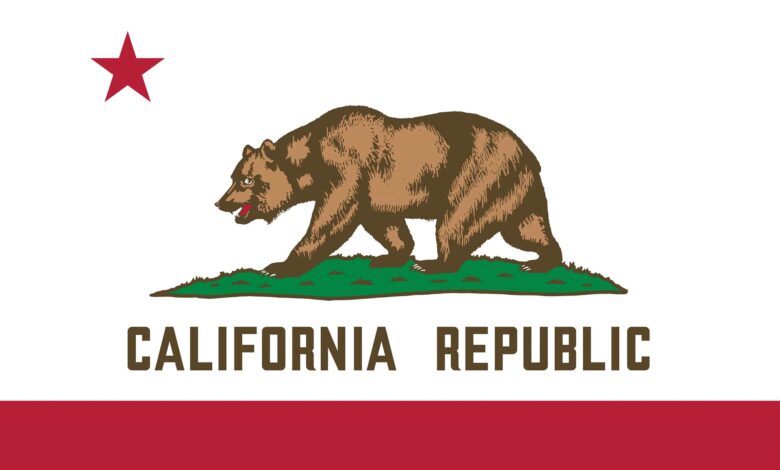
SACRAMENTO, CA – Starting January 1, 2025, California has enacted a series of new labor laws aimed at improving worker safety, rights, and overall well-being. Signed by Governor Gavin Newsom, these reforms address modern workplace challenges and provide greater protections for employees across the state.
Governor Newsom stated:
“California’s new laws tackle today’s biggest emerging challenges head-on — from cracking down on retail crime to protecting your digital identity. Through partnership with the Legislature, we’re strengthening public safety, building more housing, and providing more resources for our communities. These practical reforms protect what matters most while creating more opportunities for all Californians.”
According to California State official website, the new labor laws include changes to minimum wage, anti-discrimination protections, paid leave, and employer policies regarding union organization.
Minimum Wage Increase
Effective January 1, 2025, California’s minimum wage for all employers, regardless of business size, has increased from $16.00 to $16.50 per hour. Some cities in California have higher local minimum wages, which employers must comply with.
For salaried employees exempt from hourly wage laws, the minimum annual salary has increased from $66,560 to $68,640.
For fast-food workers, a separate wage structure applies:
- $20 per hour for hourly employees
- $83,200 annually for other employees
Stronger Anti-Discrimination Protections
Under the new laws, employers can no longer discriminate against workers based on a combination of protected characteristics, such as race and gender. This means an employer cannot discriminate against an individual who belongs to more than one protected category—for example, a female employee from a racial minority.
Restrictions on Unnecessary Driver’s License Requirements
With the SB 1100 law now in effect, employers cannot require workers to hold a driver’s license unless driving is an essential part of the job. This change aims to reduce discriminatory hiring practices that create unnecessary employment barriers.
Expanded Workplace Leave Protections
Employers are now prohibited from retaliating against workers who take leave due to:
- Serving jury duty or complying with a court subpoena
- Experiencing domestic violence, sexual assault, or harassment
Workers affected by domestic violence have the right to take leave to seek:
- Protective restraining orders
- Mental health counseling
- Shelter services
Ban on Mandatory Political and Religious Meetings
Starting January 1, 2025, California employers can no longer force employees to attend mandatory meetings on political, religious, or union-related topics during work hours. Employers who violate this law may face a fine of $500 per employee per violation.
Freelancer Worker Protections
New laws now require employers to:
- Pay freelancers on time, either by the agreed contract date or within 30 days of completing the project.
- Provide a written contract and keep records for at least four years.
- Face legal action from unpaid freelancers, who can sue for legal fees and damages.
Transparency in Social Compliance Audits
Employers who voluntarily conduct audits on child labor compliance must now publish audit results on their websites. This ensures public transparency regarding workplace compliance with child labor laws.
Mandatory Employee Rights Disclosures
Employers are now required to display workplace notices detailing employee rights and responsibilities. These postings must be visible to all employees to ensure awareness of wage laws, labor protections, and workplace rights.
Equal Pay for Workers with Disabilities
The SB 639 law, originally passed in 2021, has now been fully implemented.
- As of January 1, 2025, employers can no longer pay workers with disabilities below minimum wage.
- This law ensures that all workers, regardless of ability, receive fair wages and are treated with dignity and equality.
Paid Sick Leave for Extreme Weather Conditions
Agricultural workers in California can now take paid sick leave during hazardous weather conditions. This law aims to protect workers from extreme climate risks such as excessive heat, wildfires, and poor air quality.
Safety Standards for Public Events
The AB 2738 law, introduced by Assemblymember Luz Rivas, mandates new safety standards for live events before they begin. This ensures improved security for both workers and attendees at concerts, festivals, and public gatherings.
Addressing Food and Medical Deserts
Under SB 1089, grocery stores and pharmacies must provide advance notice before closing, allowing time for employees and the community to prepare. This policy helps reduce the negative impact of food and medical supply shortages in low-income areas.
Steps for Businesses to Comply
Employers should prepare by:
- Budgeting for increased labor costs due to minimum wage hikes
- Reviewing salary adjustments for exempt employees
- Updating anti-discrimination and hiring policies
- Ensuring job postings do not require unnecessary driver’s licenses
Businesses must take proactive steps to align workplace policies with these new labor laws.
Why These Laws Matter
California’s new labor laws reflect the state’s commitment to protecting workers’ rights. These reforms:
- Enhance workplace safety
- Ensure fair wages for all employees
- Protect workers facing economic and climate-related challenges
By prioritizing worker rights, fair pay, and safer conditions, these policies create a healthier, more equitable work environment for all Californians.
These changes mark a significant step toward strengthening workplace protections while fostering a more just and sustainable economy for the state.




